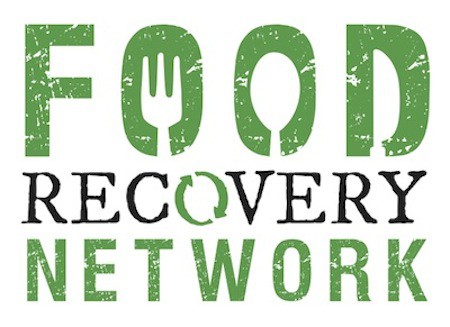By Erin Worden
Special to The Denisonian
Denison’s chapter of the Food Recovery Network — a national organization that enables students to donate food wastes from dining halls to in-need community agencies — was implemented in mid-October. The Network is the byproduct of cross-campus collaboration involving DCA’s Homelessness and Hunger (HnH), the Sustainability Fellows, the Alford Center for Service Learning and Bon Appétit Food Services.
Corroborated by her past experience with the Network, S. K. Piper, Denison’s Sustainability Manager for Bon Appétit, said the network “provides an institutional backing” and streamlined framework for college students to donate dining hall food waste to local organizations. She said that the Network arms students with resources such as food handling education, safety training and advice for collaborating with on-campus and community organizations.
Currently implemented in Curtis Dining Hall, HnH volunteers retrieve weekday leftovers from lunch and dinner and ultimately store the food in the refrigerator of the Alford Center for Service Learning until local Granville and Newark agencies can retrieve their donations.
Expired food from Slayter is collected and donated, too.
Daniel Fiorentini, a junior environmental studies and biology double major from Los Angeles, Calif., said, “The food donations we got [in years past] from the dining halls were rather irregular.” As a Sustainability Fellow and the Volunteer Coordinator for HnH, Fiorentini said, “This year, along with the Sustainability Fellows program…[HnH] decided to develop it even further and collaborate.”
Denison’s Network currently supplies the Salvation Army, the Society of St. Vincent De Paul, the United Church of Granville, Water’s Edge and YES Clubhouse with food—either to be served or distributed to in-need community members—according to the Associate Director of the Alford Center for Service Learning, Susie Kalinoski.
Since the program’s implementation, Kalinoski approximates that Denison’s Network has provided agencies with a total of 60 pans of food in less than a month.
“I’m really happy to see how much progress has been made,” said HnH member Nelson Dow, a sophomore from Cambridge, Mass. pursuing an environmental studies major and a sociology-anthropology minor.
Fiorentini said, “It’s certainly an enjoyable program, but there are things we have to consider [since] we’re looking to expand the program.”
Piper said growing a broader network of volunteers to collect leftovers from all lunches and dinners, in addition to breakfast, is crucial to the Network’s future success.
Fiorentini hopes that an increase of first-year involvement will not only encourage “environmental sustainability, but social sustainability. In getting rid of our waste, [we’re] also helping other people that may be less fortunate than us.”
Dow sees Greek life and other philanthropy-based organizations as prospects for the Network’s expansion.
Echoing the concerns of Dow and Fiorentini, Kalinoski admitted limited storage space in the DCA office refrigerator restricts the quantity of food donations.
Grants furnished by the Food Recovery Network and on-campus establishments, according to Fiorentini, are currently being considered in the attempt to fund the purchase of larger storage space.
Piper said, “Like good liberal arts students, you’re all dreaming big. This is the first tiny step, and we want to expand it to all 21 meals at both dining halls. [The Network] is a model that has done that at other schools, and it’s really inspirational.”
If you are interested in volunteering, please contact Susie Kalinoski in the Alford Center for Service Learning at [email protected] or 740-587-6639.

